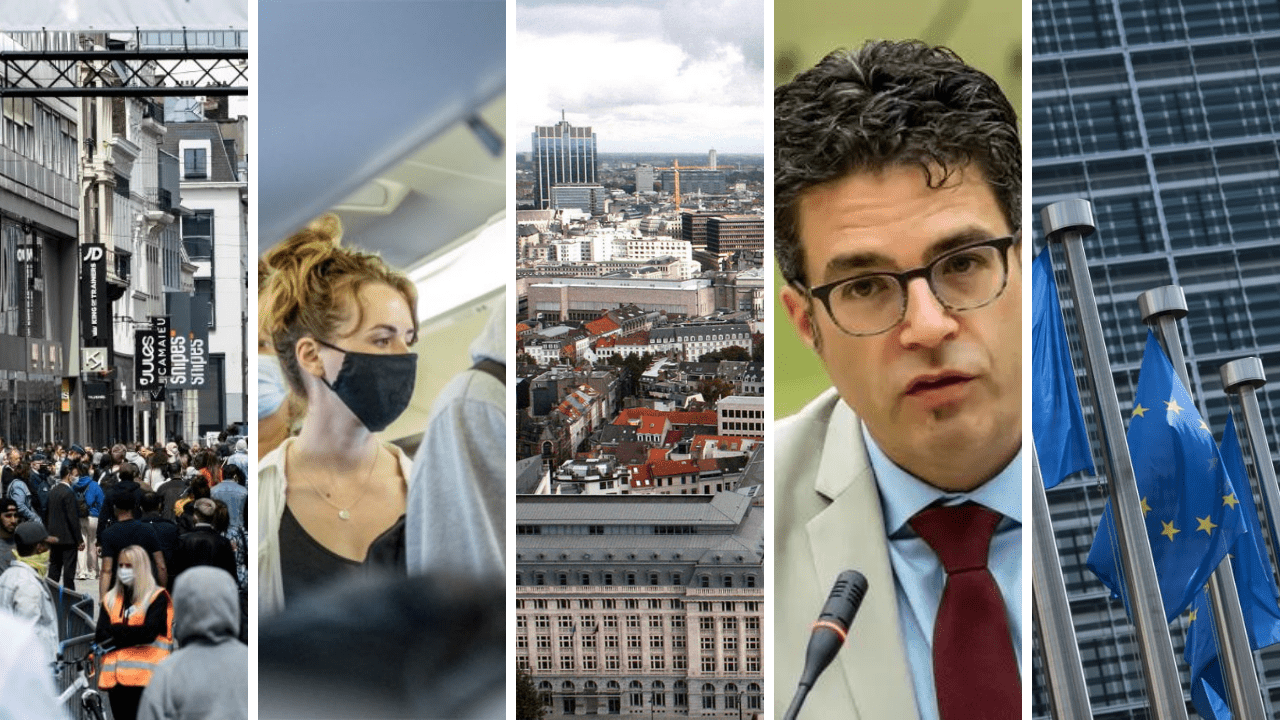Belgium has been top of the class a few times in the past months. Unfortunately, it's not something to be proud of when you're being named as the Number one... country for infection rates.
That title is, in fact, no longer held by Belgium. Latest figures pushed the country down to 6th place, with the Czech Republic (1,331 cases/100,000 inhabitants) now occupying 1st place, closely followed by Luxembourg (1,312/100,000). In third and fourth place are Liechtenstein (1,128/100,000), and Slovenia (996/100,000), then France (941/100,000).
This change may have knocked Belgium from the top spot, but the question still stands as to why this happened. Speaking to The Brussels Times, virologist and interfederal Covid-19 spokesperson Steven Van Gucht broke down his reasoning.
“Belgium is a small beehive in the heart of Europe, which makes the country very vulnerable to both the introduction and the further spread of the virus,” said Van Gucht. “In an international context, as well as from one province to another and between cities, Belgium is in a very vulnerable position, for a number of reasons,” he added.
To him, there were 5 clear reasons why things could have ended up this way. Read more here.
For those looking for news, just keep on reading.
Belgium in Brief is a free daily roundup of the top stories to get you through your lunch break conversations. To receive it straight to your inbox every day, sign up below:
1. 1 in 6 Belgians do not want a vaccine
Approximately 1 in 6 Belgians do not want to be vaccinated against coronavirus, according to a survey carried out by Ipsos on behalf of Het Nieuwsblad.
Of the nearly 1700 people questioned, only 36% want to get the vaccine as soon as possible, 47% not immediately and 17% never.
The survey also reveals striking differences between the desire for immediate vaccination across the regions. Read More.
2. ‘Small beehive’: why the coronavirus hit Belgium so hard, twice
Several factors contribute to Belgium being particularly vulnerable to being hit hard by the coronavirus, both before and after the summer, consistently placing the country near the top in international rankings.
In a recent interview with The Brussels Times virologist and interfederal Covid-19 spokesperson Steven Van Gucht explained how things got so bad for Belgium.
3. Bird flu: Private poultry owners told to lockdown their birds
The H5N8 bird flu is now present in wild birds in Belgium, and from Sunday 15 November, not only professional poultry farmers, but also private individuals will have to confine or protect their birds, according to Federal Agriculture Minister David Clarinval.
Making the announcement on Saturday, the Federal Agency for Food Chain Safety (Afsca) said, however, there was no risk to consumers. Poultry meat and eggs can be consumed safely.
The first cases of bird flu were detected in three birds in a revalidation centre for wild geese in Ostend, prompting Afsca to issue a warning in late October. Read more.
4. Belgium’s lockdown will last at least 2 more weeks, PM confirms
Belgium’s Consultative Committee decided that, despite the slight improvements in the country’s coronavirus situation, the current lockdown measures will stay in place for at least two more weeks.
During a videoconference meeting on Friday afternoon, the Committee established that Belgium is still in a state of sanitary emergency, which is why the current measures will not be relaxed yet.
“Especially given the reopening of the schools on Monday 16 November, extreme caution continues to be required,” Belgium’s Prime Minister Alexander De Croo said in a statement. Read More.
5. Human rights were ignored in Belgium’s care homes
The basic human rights of the residents of Belgium’s care homes were ignored during the coronavirus crisis, according to a report from Amnesty International.
The report is based on testimony from witnesses inside the care homes from March to October – from the initial stages of the crisis through the summer to the start of the second wave.
According to Amnesty, the homes were ill-prepared for the crisis. The homes had a protocol in place for dealing with infectious diseases, but nothing that could have responded to an outbreak like the one that took place. Read More.
6. ‘Pizzas had just arrived’: 10 people caught at lockdown party in Antwerp
On Saturday evening, ten people in their twenties were caught having a lockdown party in the municipality of Essen in Antwerp, the local police report.
The police received a tip from a woman who passed by the green area where the party was held on her bicycle and heard the festivities, around 7:00 PM.
“There were several bicycles, a campfire, and there was a lot of alcohol,” the police said in a press release. “The moment our teams got there, the pizzas had just arrived.” Read more.
7. Police called to join coronavirus ‘fine strike’ after brawl fuels discontent
Police unions are calling on officers to stop handing out fines to protest a perceived lack of support from authorities throughout the pandemic and following clashes at the weekend.
Several unions are urging their members to join in the “fining strike” and no longer hand out fines to offenders of coronavirus measures to demand a response from authorities after police officers clashed with passers-by during an identity check in Ixelles. Read more.
Jules Johnston
The Brussels Times



